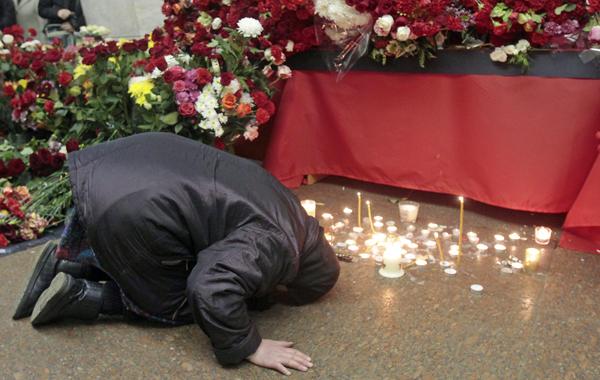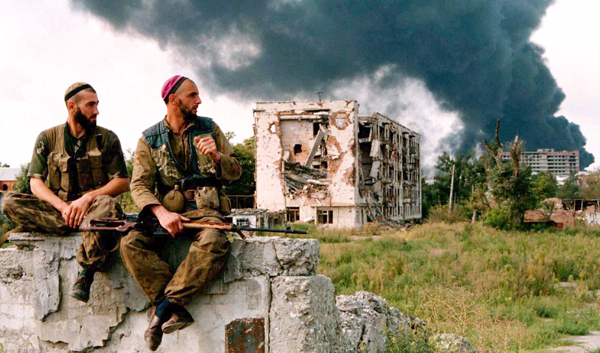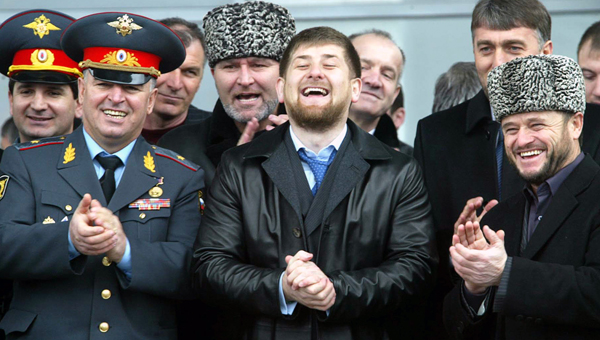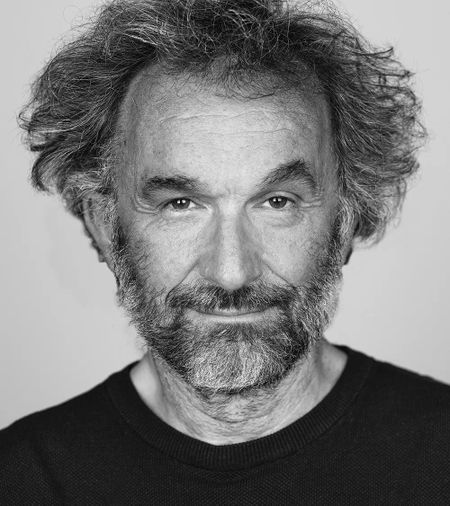Muscovites are now steeling themselves to bury their dead from the two suicide bombings in the capital's subway system, a transport network used by millions daily. The subway's ornate stations have been a source of pride for Russians for years, but now the subways are a source of foreboding as well.
At the beginning of the week, two suicide blasts killed 39 people and wounded dozens of others. Two black-shrouded women, the so-called “black widows”, usually the actual widows of Chechen insurgents, were the bearers of these bombs. Then two more bombs, this time in Dagestan, near the Chechen region, exploded as well.

Photo: A woman prays near flowers and lit candles, left in memory of victims of a bomb explosion, at Lubyanka metro station in Moscow March 30, 2010. Moscow observed an official day of mourning on Tuesday and nervous commuters returned to the metro, while the death toll from twin suicide bombings on the capital's underground railway rose to 39 people. REUTERS/Alexander Natruskin
On Wednesday, Doku Umarov, the Chechen militant leader, claimed responsibility for the subway attacks, defying Prime Minister Vladimir Putin's promises of the past several years that he would shut down the Chechen rebellion. Umarov's claim appeared in a web-video claiming Monday's twin suicide attacks were in revenge for the earlier killing of Chechen civilians by Russian security forces.
Umarov's Internet statement came after Putin threatened to "drag out of the sewer" the terrorists who plotted the subway bombings. When Wednesday's suicide bombings in the town of Kizlyar in the Dagestan area killed 12 more people, Putin charged these further assaults might well have been planned by the same people responsible for the Moscow bombings.
Watch: Doku Umarov claims responsibility for Moscow bombings
Russian leaders routinely portray these Chechen bombers as Islamic extremists, but the truth seems more complex. The Chicago Project on Security and Terrorism has carefully examined every Chechen suicide attack since 2000. While many Chechen separatists are Muslim, relatively few of the suicide bombers seem to have professed religious motives before they acted. As a result, rather than having specifically religious motives, the group's research shows suicide terror campaigns like the Chechen one represent a belief that this is the last resort against foreign military occupation.
The new series of suicide bombings in Moscow is the first in the capital in six years and will inevitably be perceived as a shocking wake-up call for Russians who had been able to convince themselves they were walled off from the ongoing violence in the Caucasus, after the reign of terror attacks in the capital of nearly a decade earlier.
In the 1990s, the rebels had managed to force the withdrawal of tens of thousands of Russian troops who had earlier been sent to the region to prevent Chechnya declaring its independence. Then in 1999, the Russians came back with more than 90,000 troops and carried out a scorched-earth campaign that killed an estimated 30,000 to 40,000 civilians. Ordinary guerrilla tactics and hostage-taking, key to ousting the Russians the first time, now took the rebels nowhere and so the insurgents sought out new tactics, such as a suicide bomb campaign, with those women in black as a crucial part of the effort.

Photo: Two Chechen rebels sit amongst wrecked buildings near the railway station in central Grozny 26 August 1995, as a plume of black smoke hangs over the city's oil plant which was set ablaze in earlier fighting. Russian security chief Alexander-Lebed met Russian Prime Minister-Chernomyrdin a few days before in Moscow to seek top-level backing for his peace plans in the breakway republic. Reuters.
In fact, Umarov argued in his Internet message that the real blame for the renewed violence should be laid at the feet of the Russian “men-in-the-street”, because they had turned a blind eye to the continued killing of civilians in the Caucasus by Russian military and police forces. Or, as Umarov wrote, “I promise you that the war will come to your streets and you will feel it in your lives, feel it on your own skin".
Umarov fought in both of Chechnya's separatist wars and has become the effective leader of the rebel movement, taking over after the Russians killed his predecessor, Abdul-Khalim Sadulayev. Umarov became even more important after the Russians killed Shamil Basayev, who was apparently responsible for the hostage-taking at the school in Beslan six years ago that killed more than 200 children.
In 1997, after Russian troops had withdrawn from Grozny city, Umarov became head of the fledgling Chechen government’s security council. The Russians eventually crushed the separatist movement, killed its most charismatic leaders and its increasingly brutal tactics alienated the population. The increasingly despondent nationalists apparently sought out the trappings of a much bigger cause to bring history to their side, and so, three years ago, Umarov declared himself the new emir of the Caucasus Emirate, claiming it would establish a Sharia law-based independent state.

Photo: The first Chechen president, Dzokhar Dudayev, presents a document to the press which he says proves the Kremlin is planning to deport the Chechen population and replace them with Russians loyal to President-Boris-Yeltsin, during a press conference at the Presidential Palace in Grozny, 15 December 1994. Originally a Soviet Army Air Force General, Dudaev was ultimately killed by a GPS-guided rocket on 21 April 1996. Reuters.
The ultimate roots of the Chechen insurgency stretch back to the late 1700s when an expanding Russian empire began to supplant the Ottomans as the dominant power in a region filled with mountain tribes and a jumble of ethnicities and religions. As Russian power grew in the 19th century, it gradually overwhelmed Islamic emirates in Central Asia, as well as the small nationalities of the Caucasus region – Circassians, Georgians, Azeris, Armenians, Dagestanis, Ingushetians and Chechens. Some, like the Christian Armenians and Georgians allied themselves with the Russians. Others, like the Chechens, fought tenacious, decades-long, rearguard actions to hold off the Russian tide.
In something of the way writers like James Fenimore Cooper, Zane Gray or Karl May defined the texture of the American frontier and the evolving relationship between settlers and Native Americans, the great Russian novelist, Leo Tolstoy, created the archetype of the implacable Chechen rebel with his “Haji Murad” story that gave the Russians their enduring image of merciless, fanatical, unyielding rebels. Or, as one bystander to the explosion told The New York Times' reporter in Moscow, “It’s the Chechens, they will never let us live in peace. We should build a Great Wall of China to keep them away from us. They should be walled away. They hate us, and they will always hate us.”
In World War II, Joseph Stalin, who was of Georgian extraction and no fan of the Chechens, ordered the removal of much of the Chechen population (perhaps 400,000 to 800,000 people) from their homes on the grounds they were making common cause with the advancing German Wehrmacht, as it rolled onward to the oil fields of the Caucasus. This forced exodus to Siberia and Kazakhstan, and their lengthy exile before they could return to Chechnya in the mid-1950s, burned itself deeply into Chechen memory. As the Soviet Union teetered to collapse at the end of the cold war (just as the restive Baltic states, the various Central Asian republics and the Georgians, Armenians and Azeris) the Chechens felt that this, finally, was the moment they had been anticipating for a century.

Photo: Chechnya's current President, Russian-installed Ramzan Kadyrov (C) applauds as he watches a show at Grozny airfield March 8, 2007, to celebrate the arrival of the first flight from Moscow. Russia's troubled Chechnya reopened its civilian airport on Thursday in a move intended to show that the war-ravaged region is recovering under its pro-Moscow government. REUTERS/Said Tsarnayev
The difference, of course, was that Chechnya, politically, was an integral part of the Russian republic, not one of the 15 distinct states that went their separate ways with the collapse of the USSR. For Russians, Chechen independence was tantamount to the first step in the thorough disintegration of Russia and, thus, an incitement to the other ethnic minorities in the Russian republic to declare their independence. As a result, Russian political and security leaders have consistently striven to crush Chechen independence efforts. This led to the two brutal military campaigns and the Chechen retribution of terror attacks, including the killing of the first separatist president of the Chechen region, Dzhokar Dudayev, by a rocket that used his satellite phone as target.
In the past year, despite a presumed slackening in the overall fighting, a report by the Washington-based think tank, the Center for Strategic and International Studies notes that some 916 people died in the Northern Caucasus in 2009 in violence related to the clashes, about 40% more than in 2008. Meanwhile, another violence-monitoring organisation, the Caucasian Knot, has reported that the region had 172 terrorist attacks last year, killing 280 people in Chechnya, 319 in Ingushetia and 263 in Dagestan.
The bloodshed has continued despite Russian efforts to tamp it down. Recently, Russian president Dmitry Medvedev, who has said the militants have spread through the region "like a cancerous tumour," appointed a new deputy prime minister to deal with the region and to address its dire poverty and corruption as a way of moving away from the ongoing cycle of violence.
This most recent violence, therefore, has targeted Putin's power in government – symbolically attacking the Lubyanka subway station beneath the headquarters of the Federal Security Service, the successor to the KGB. In fact, Umarov, in his web communiqué called the Moscow attacks "greetings to the FSB". (The second blast hit the Park Kultury station, near Gorky Park).
There is apparently no current way to break out of this ongoing cycle of violence and Moscow's citizens will probably get more and more used to looking over their shoulders, and becoming nervous whenever a sombre, black-clad woman with a vaguely oriental look sits next to them on the subway, in the theatre, at the movies or in a shopping mall café.
And Chechens will probably find their lives increasingly interrupted by the tender ministrations of the Russian army, the FSB and anything else Vladimir Putin throws into the effort. Not a happy prospect for anyone.
By J Brooks Spector
For more, read the AP, the New York Times, the New York Times, the New York Times, the New York Times blog, Global Issues, and Wikipedia.
Main photo: A Russian soldier stands near his tank parked by a demolished civilian car in the ruined central part of Grozny, 27 February 1995. The rebel Russian region of Chechnya capital of Grozny had become a rubble after 11 weeks of fierce Russian borbardment and street fighting. Reuters.
Watch: First Chechnya War





